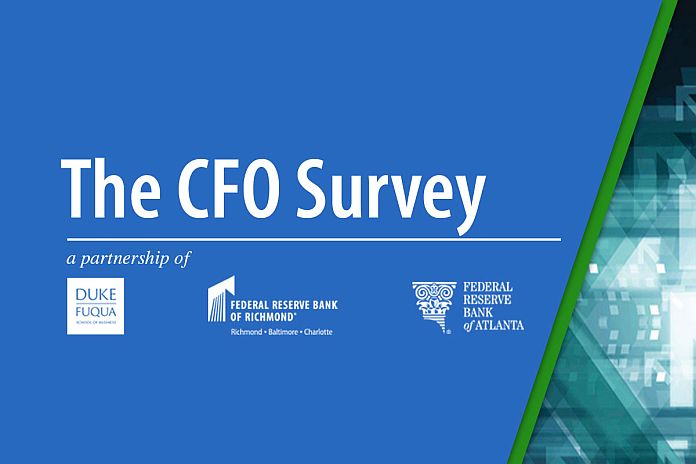VIRGINIA, USA – Corporate financial decision-makers are generally optimistic about US economic prospects, but note downside risks for 2021, as well as a trend towards workforce automation, according to the results of The CFO Survey, a collaboration of Duke University’s Fuqua School of Business and the Federal Reserve Banks of Richmond and Atlanta.
“Chief financial officers (CFOs) are looking past the pandemic and are reasonably optimistic about 2021,” said the survey’s academic director, John Graham, a Duke Fuqua finance professor. “However, they note several important risks and uncertainties, including a shift from concerns of low demand to issues such as labor quality, tax policy and increased automation.”
The survey was fielded from November 30 to December 11, 2020. In terms of the outlook for their own firms, CFOs rated the average optimism at 71 on a scale of 0 to 100 — slightly above the third-quarter reading of 70.4. When asked to rate their optimism about the overall US economy, the average rating was 61.6, also above the third-quarter reading.
Respondents expressed considerable uncertainty about revenue expectations, however. When asked for the highest and lowest possible percentage changes in revenue for 2021, the average respondent’s forecast ranged from -1.6 percent to 13.7 percent. Also, the CFOs who are most uncertain about 2021 revenues are also least optimistic about the economy, and, particularly, the financial prospects of their own firms. This indicates that the still-uncertain environment is affecting financial decisions.
While hiring is expected to rebound in 2021, more than half of large firm CFOs say their companies are shifting away from labor towards automation. Among firms ramping up automation, approximately 80 percent say automation is reducing the need for low-skill workers, compared to about 45 percent replacing high-skill employees.
The CFO Survey is issued by Duke University’s Fuqua School of Business and the Federal Reserve Banks of Richmond and Atlanta.





